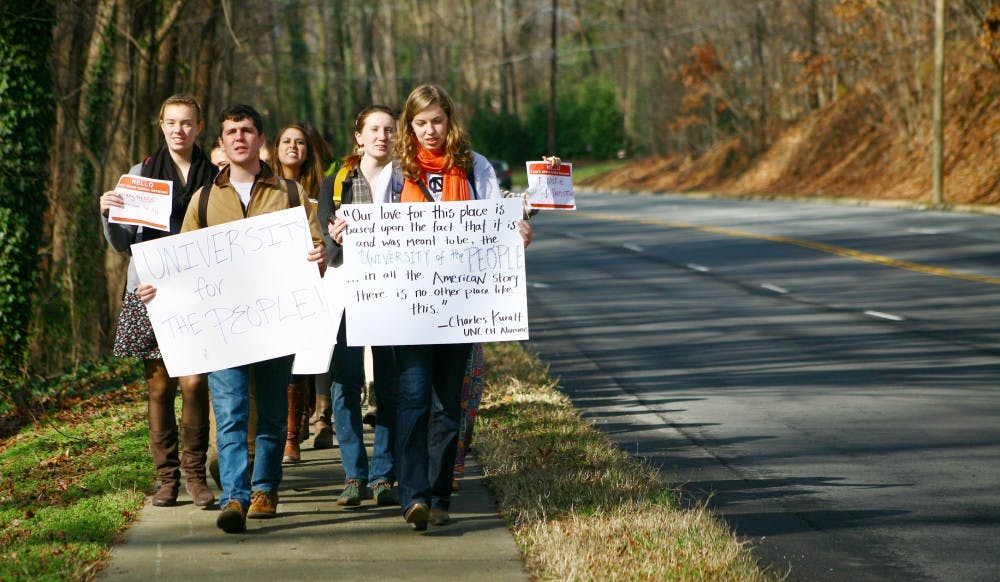In an effort to address both students’ concerns about tuition hikes and administrators’ concerns about a loss of academic quality after years of budget cuts, UNC-system President Thomas Ross aims to meet them halfway.
Ross said he will recommend tuition and fee increases of less than 10 percent for in-state undergraduates at all system schools to members of the Board of Governors, which met Thursday in a room packed with campus administrators and students.
Several universities proposed tuition and fee increases above that mark, including UNC-CH’s proposal of 11.4 percent. Schools proposed average tuition and fee increases of 9.6 percent systemwide.
“It’s about a balance,” Ross said. “It’s about a balance between low tuition and high quality, maintaining excellence.”
Ross also said he will recommend increases for two years rather than the five-year plans proposed by many system schools. UNC-CH’s Board of Trustees submitted a proposal to increase tuition by $2,800, or 40 percent, during the next five years.
Board members will receive Ross’ recommendations in the next couple of weeks in preparation for a vote on tuition increases in February. The board will then send their recommendations to the N.C. General Assembly for final approval.
Bruce Carney, executive vice chancellor and provost for UNC-CH, said the University’s Board of Trustees will continue to seek approval of their proposed tuition increase from the Board of Governors.
“I’m still in wait-and-see mode,” said Carney, who is the author of the 40 percent increase proposal.
The system’s net reduction of $482 million in funding for campuses in the last four years has resulted in fewer course sections and larger class sizes for students. Chancellors have also cited the need to retain faculty through pay raises in their requests for more tuition revenues.



